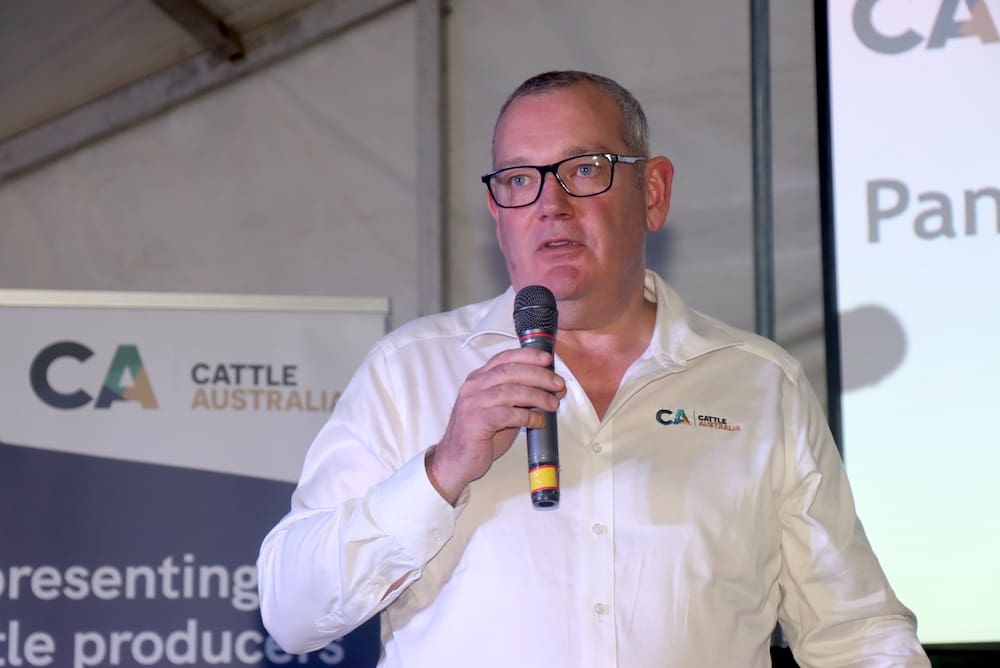GRASSFED beef producer peak body Cattle Australia has welcomed a pledge made today by the Coalition to enact in full CA’s plans for smarter biosecurity system to protect Northern Australia and the industry across the country, and is calling on Labor to follow suit.
Shadow Agriculture Minister and Leader of the Nationals, David Littleproud, has promised to implement CA’s calls for a sustainable model for fully-funded national biosecurity system, including user-pays charges on importers, as well as $2 million for a pilot trial of real-time early-warning surveillance technology for lumpy skin disease.
“A future Coalition Government will put an end to Labor’s terrible fresh food tax threat, or biosecurity protection levy, and most importantly, legislate sustainable and secure biosecurity funding,” Mr Littleproud said.
“The Coalition will introduce an Import Container Levy by Sea and Air, making those who are responsible for creating biosecurity risks pay for it, rather than taxing our own farmers.”
The Coalition also promised to review Operation LUNAR, which is designed to intercept illegal boat arrivals on Australian shores and are a potential pathway for pests and diseases to take hold on remote grazing properties on our northern coastline.
“The technology pilot I am also announcing today will allow the detection of the presence of Lumpy Skin Disease (LSD) in our insect population, well in advance of detection in a livestock herd,” Mr Littleproud said.
“This groundbreaking trial has never been done before in Australia for LSD. It will help stop the spread of LSD if it gets to the NT, saving our cattle farmers precious time and allowing detection within hours instead of days or weeks.
“By early detection from insect nests, the $13.7 billion industry can better prepare and remain safe. LSD can spread 28 kilometres a day and would cost $7.4 billion from lost trading opportunities in the first year alone.”

Cattle Australia CEO Dr Chris Parker
Cattle Australia chief executive Dr Chris Parker said the announcement was welcome news for Australia’s grassfed beef industry, which could be decimated if diseases such as foot and mouth entered the country.
“Biosecurity is critically important to market access, animal health, productivity, and food safety,” Dr Parker said.
“Increased government investment in biosecurity, and implementing a sustainable funding model, is imperative to the protection of the red meat industry, which employs 452,000 people along the supply chain across Australia.
“We have been in discussions with the Labor Government regarding biosecurity policy for some time, including the need for Operation LUNAR to contribute to biosecurity risk monitoring.
“While improvements have been made, we encourage Labor to match the Coalition’s pledge and commit to increased biosecurity funding and enhanced biosecurity systems.”
Through CA’s involvement in the Red Meat Advisory Council, the beef industry used its 2025-26 Budget Submission to call on the Federal Government to fund early detection vector technologies.
“Early detection is the most cost-effective biosecurity investment you can make – prevention is far better than cure,” Dr Parker said.
“Through the application of vector technology to assess potentially disease-carrying insect populations at high-traffic entry points into Australia, we will be able to identify the presence of LSD well before it can be detected in the livestock herd.”
CA will work with industry and extension agencies to ensure the surveillance system is connected to a coordinated engagement program to educate cattle producers on biosecurity risks they should be aware of and how to effectively manage them on-farm.
Source: CA

